|
I am thrilled by this honor. Congratulations to all finalists and the decade award winner. Thanks to the editors for the wonderful ceremony at AOM2023. I learned a lot by reading the literature and working with my co-author Paul Adler. I hope the paper stimulates research on antecedents, functioning, and implications of bureaucratic structures, practices, and values—as well as their interplay. I have shared some reflections on the process of writing this article in a workshop on at the Ethnography Atelier together with Marya Besharov and Giada Baldessarelli. The video is available here 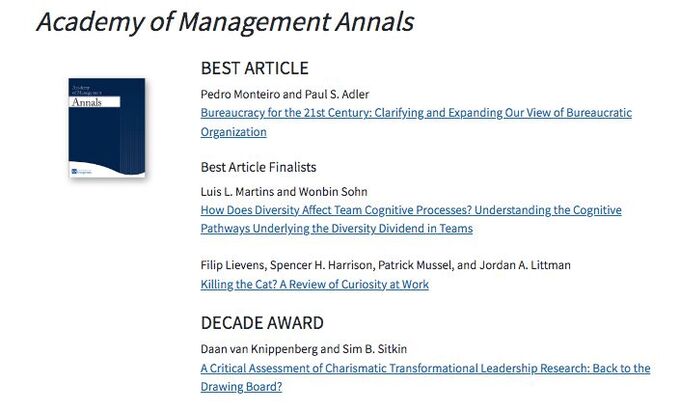 I was a true honor to visit CASBS at Stanford as a fellow for the Summer Institute on Organizations and Their Effectiveness. Wonderful colleagues, speakers, and conversations in an idyllic setting. I also got to record an interview with Sam Ortiz to the organizers of the summer institute: Woody Powell and Bob Gibbons reflecting on their work to build interdisciplinary spaces and dialogues across disciplines for the study of organizations.
The episode is available here on the Talking about Organizations Podcast My research visit to Stanford University in the SCANCOR center has come to an end after six months during the Winter and Spring Quarter 2023. I am very thankful for all the wonderful exchanges, seminars, and overall inspiring scholarly environment. Thanks to the Otto Mønsteds Fond for funding this visit and making it possible. During the visit, I had the great opportunity to exchange ideas and new collaborations. I was also glad to take seminars on organization theory and historical methods across campus.
Meeting colleagues in other departments with similar interests is very generative. I took part in a research visit and inter-departmental workshop between the Department of Organization from CBS and Center for the sociology of organizations from SciencesPo. It was great an opportunity to see the many facets and topics animating research in the field and the intellectual promise of spaces devoted to organizational and social scholarship.
Malia Carvalho (CBS) invited Andrew Hill (Financial Times) and me to discuss such topics related to academia’s pursuit of impact and the growing demand for researchers to engage effectively in conversation with a broader audience. It was an opportunity to reflect in the work on dissemination I have been doing for many years at the Talking about Organizations Podcast.
Listen to the episode here This interview is about the following paper: Huising (2015) To Hive or to Hold? Producing Professional Authority through Scut Work. The interview has been originally posted at the ASQ Blog. To read the original post click here.
Author: Ruthanne Huising — EM Lyon Business School Interviewer: Pedro Monteiro — Copenhagen Business School Article link: https://doi-org.proxy.lib.umich.edu/10.1177/0001839214560743 1. As we read your paper, we were astonished by the expansiveness and depth of your fieldwork, especially your ability to access and study 71 of the university’s 500 research labs. How did you gain access to these labs? This paper emerged from ethnographic work conducted as part of a team led by Professor Susan Silbey. Susan brought PhD students from the Doctoral programs in Management, STS, and Urban Studies onto the project, starting in 2003. There were also master’s and undergraduate students who collected data for the project. Ayn Cavicchi managed this decade-long research project and collected data, as did Susan, throughout. We spread across the institution we studied. We were in the labs, the administration, the EHS office, the legal department, and so on. This data was archived centrally and has produced papers across different fields. This is how I was able to understand what was happening across so many labs. I was able to draw on the data and insights of other ethnographers. I am delighted to see this paper out. It felt like writing a second thesis. Hoping it brings clarity on what bureaucracy is, including its promises/failures, and inspire future scholarship. Happy also that it has been picked up by the media by the Financial Times in an interesting article on mis-behaviour in public work.
Paper Financial Times article In summer 2019, while finishing my bachelor's degree in sociology, I checked out a book on "Knowing in Organizations: A Practice-Based Approach" which I had found by serendipity in the university library. The book led me to discover the field of organization studies and launch myself into graduate studies in this area exploring themes like knowledge (and knowing), collaboration, expertise, and eventually organization structure, and bureaucracy. And in this process, I discovered the work of an author named Max Boisot. Fast forward, and ten years later, I am genuinely delighted and touched to have received an award in honour of Max for work related to the knowledge-based study of complex organizations and systems by the European Group of Organization Studies (EGOS). Academia is a unique social world filled with uncertainties and re-starts (not to mention being in 'school' for so long!). There is no single path; no boilerplate; and milestones are not always clear. As the expression goes, we find our way by walking it; create the harbor from which to sail. In the midst of all this, I am thankful for the support I have received from so many wonderful colleagues — including Davide Nicolini, one of the editors of that book, who eventually became my doctoral supervisor. And I am thankful for this award which makes me look back at this past decade of scholarship and think that albeit uncertain, this walk has led me somewhere.
June 2019 I had a wonderful time at WU (Vienna University of Economics and Business) which has a fascinating architecture. I presented my ongoing work on knowledge, expertise, and bureaucracy and got very enriching feedback. The visit was also an excellent occasion to meet and catch up with academics working in great themes in organization studies; and I was particularly happy to see a lot of great work related to bureaucracy, public administration, formal organization, and even expertise! Also, maybe it is all this organizational knowledge, but the visit was brilliantly orchestrated. Especially love the welcome package with the formal agenda of meetings! The only issue is that the heatwave in Vienna melted the chocolate truffles I brought to those who came to the seminar...
May 2019 Very thankful for the opportunity to share my work on the constitutive role of bureaucracy on expertise in complex settings at the MOTI seminar in the Grenoble Ecole de Management. I receive wonderful feedback to help me push the paper forward. It is great how an attentive audience really helps you clarify research ideas!
|
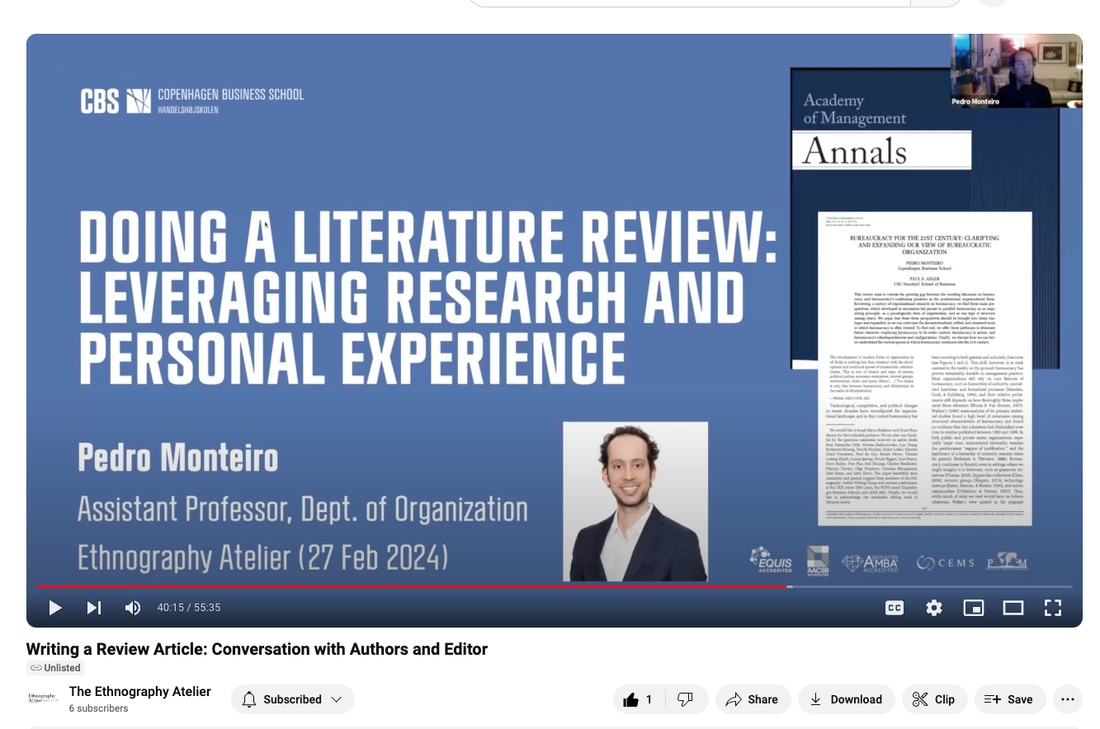
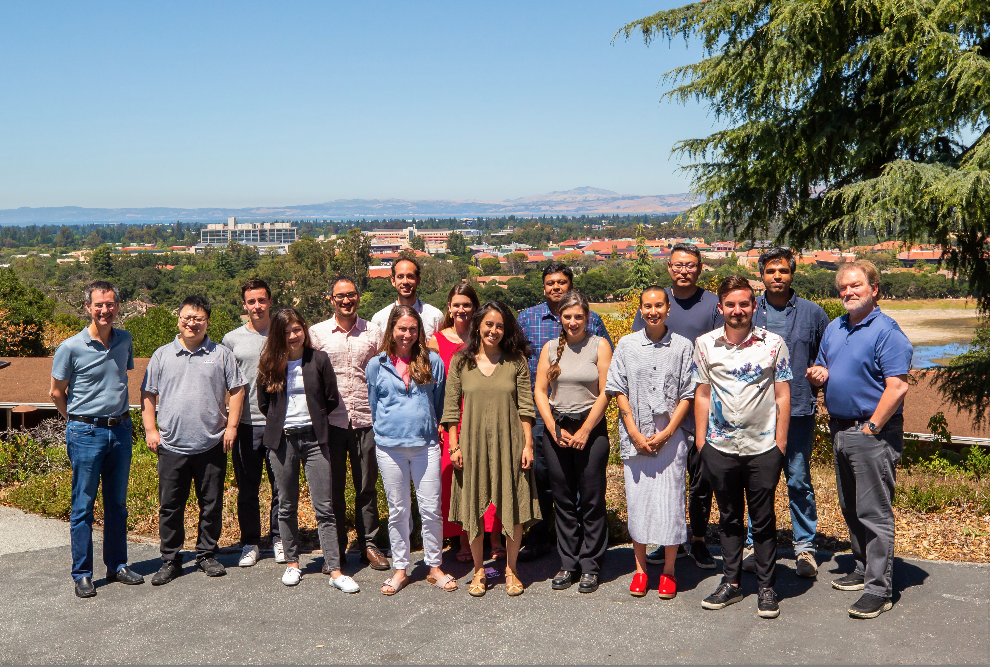
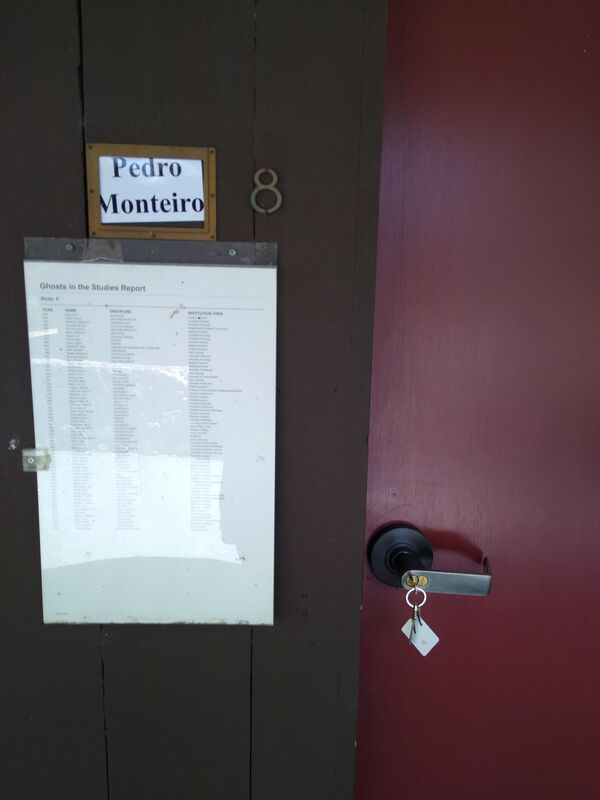
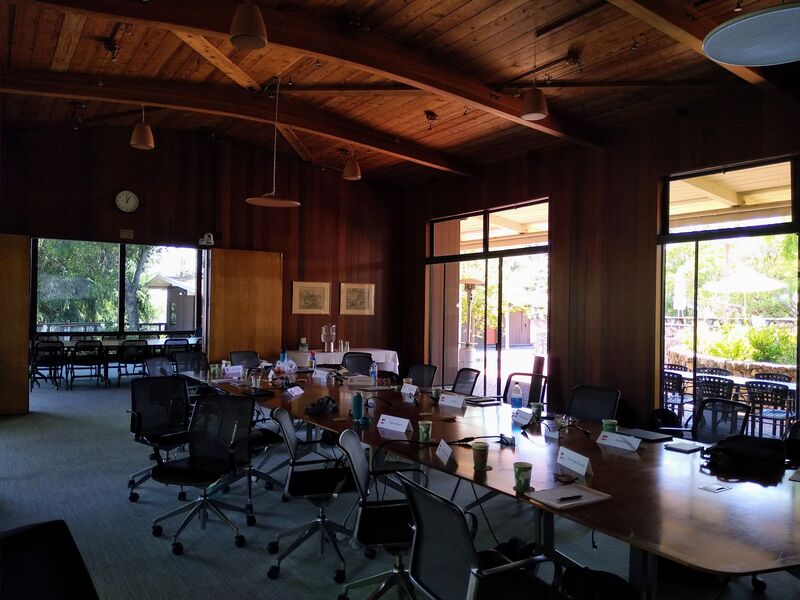
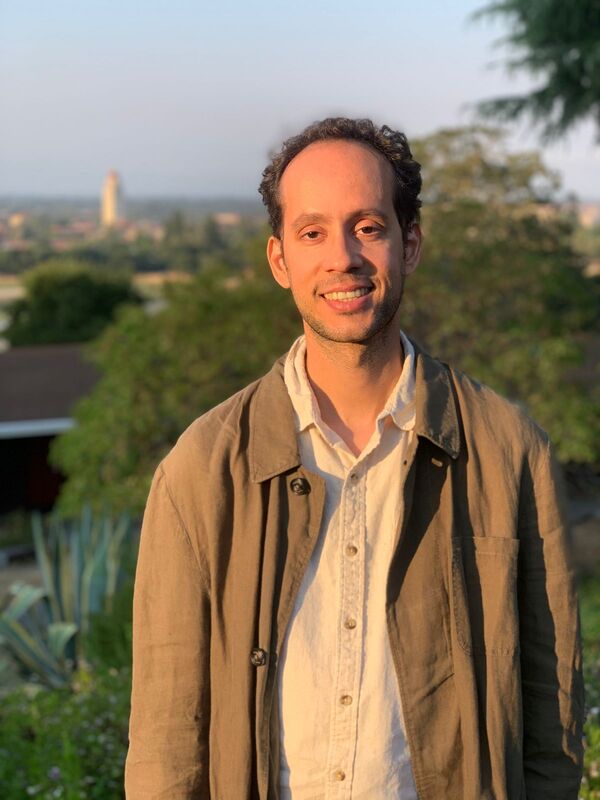
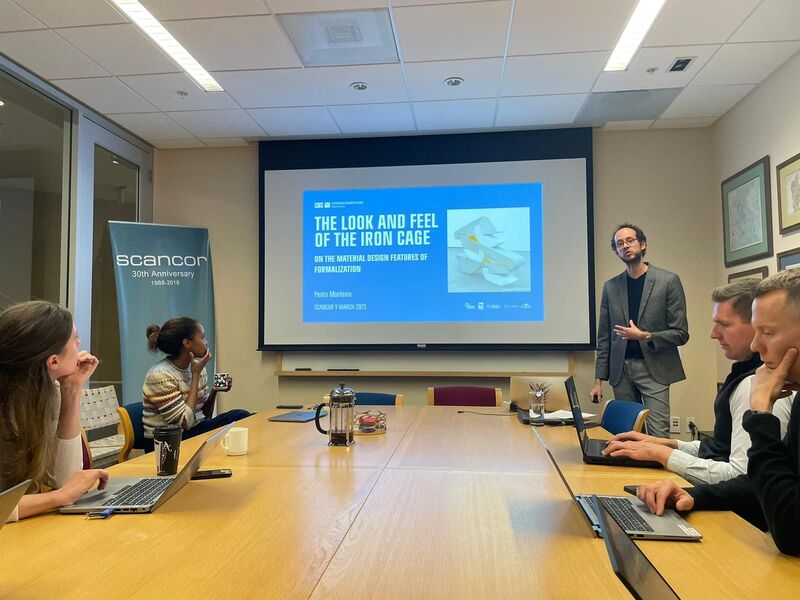
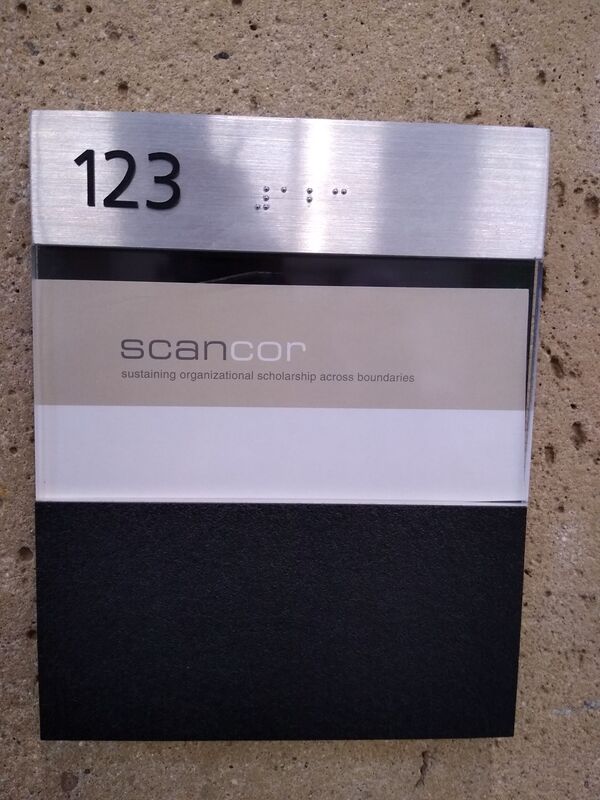
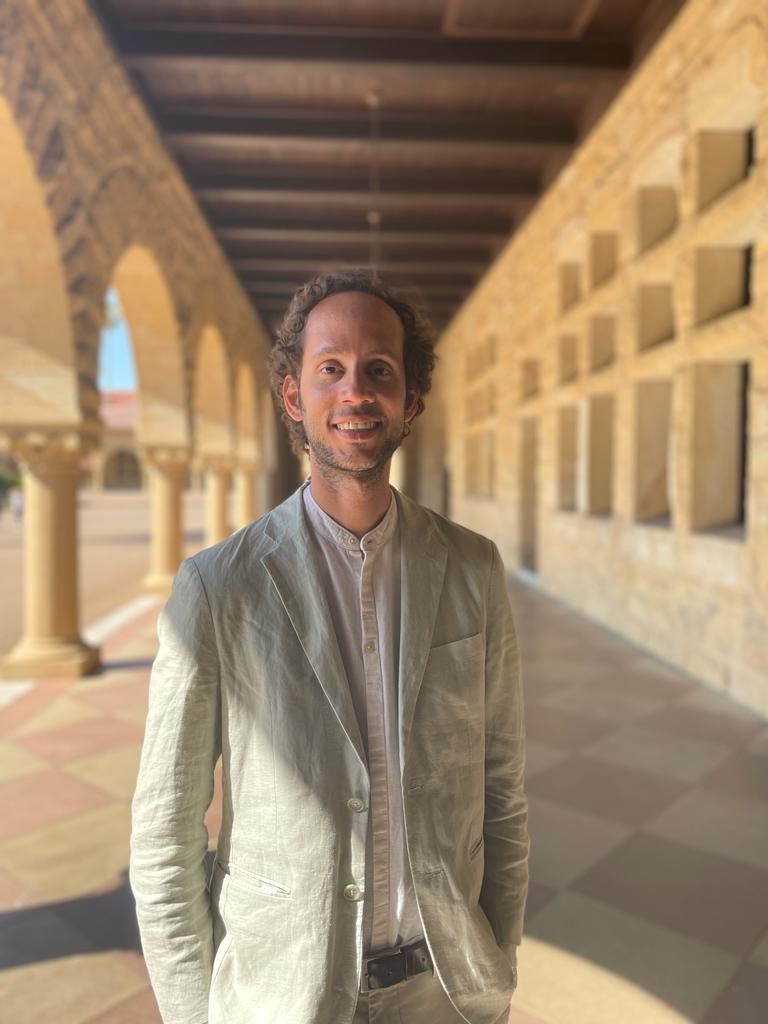
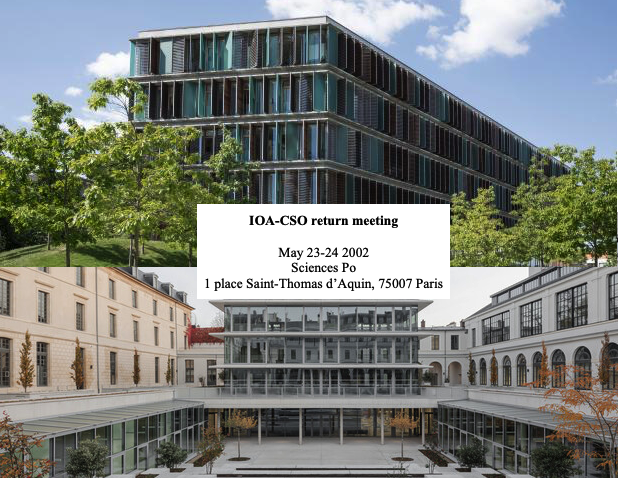
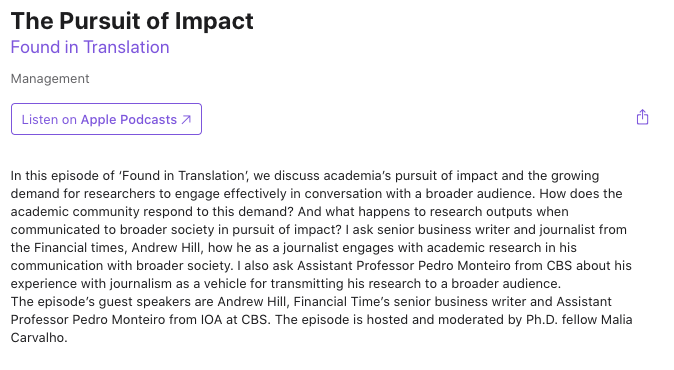
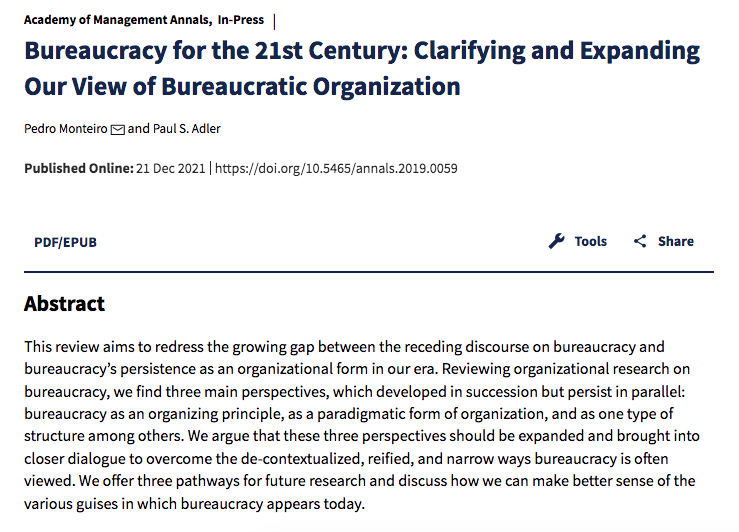
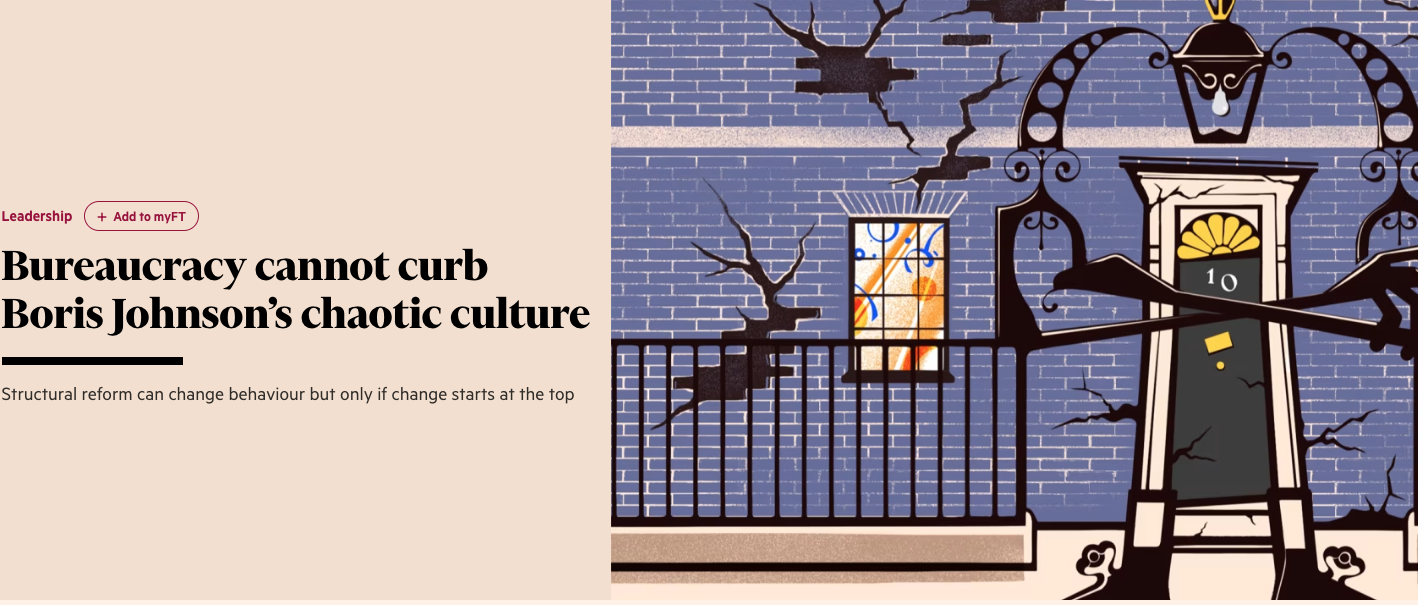
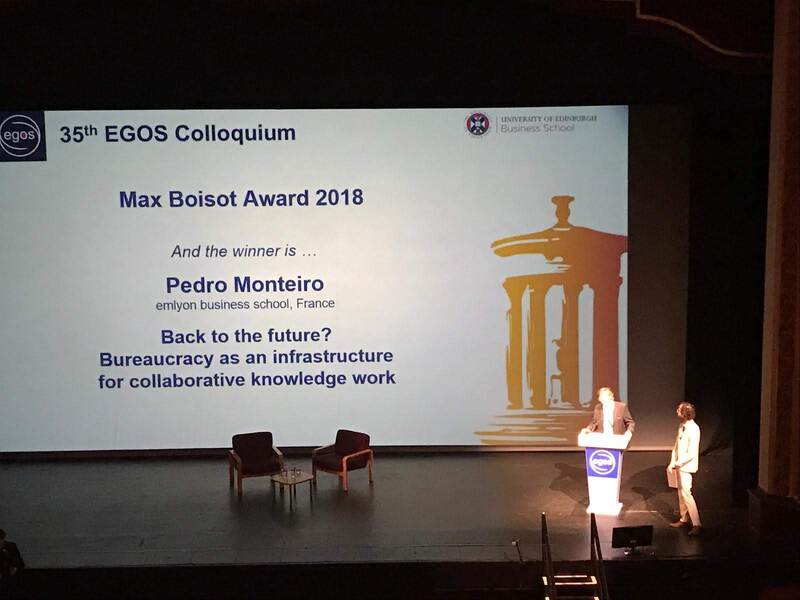
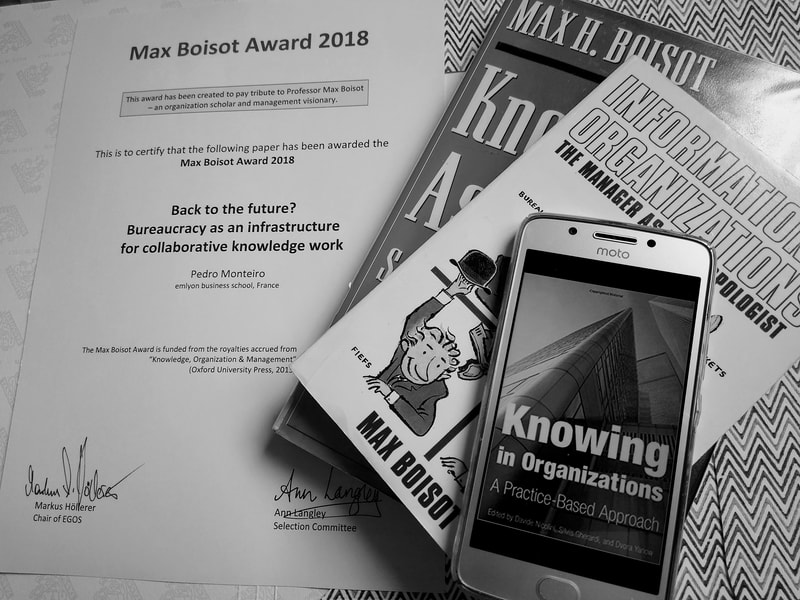
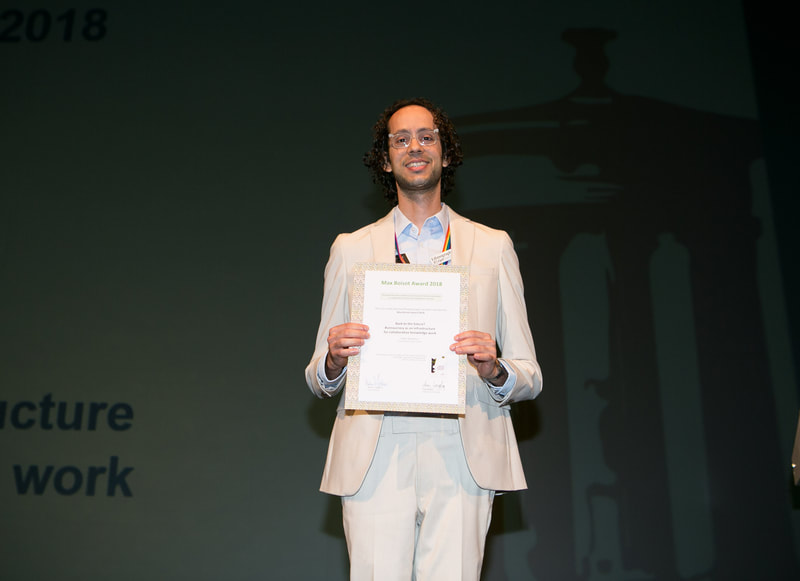
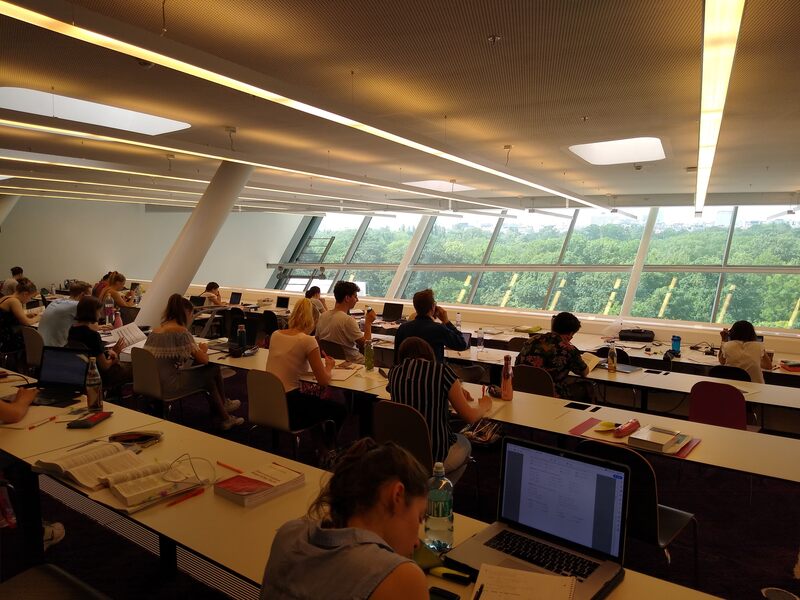

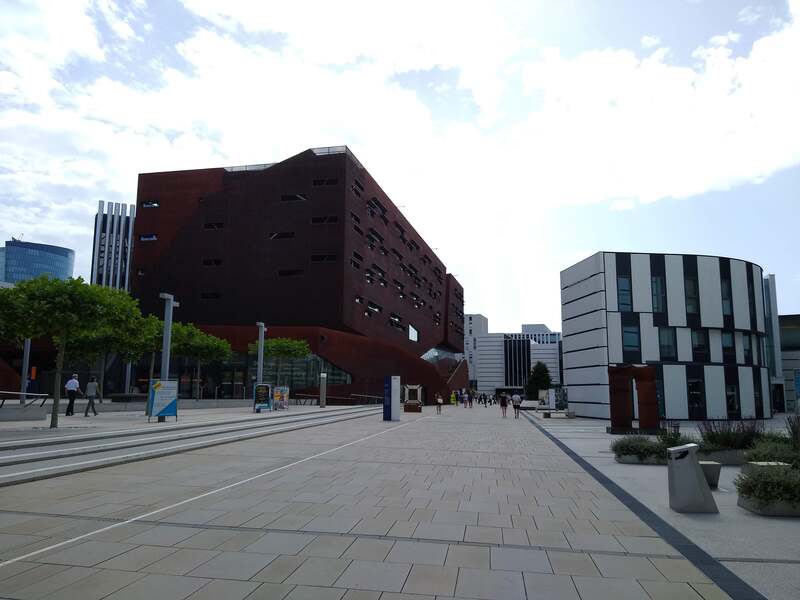
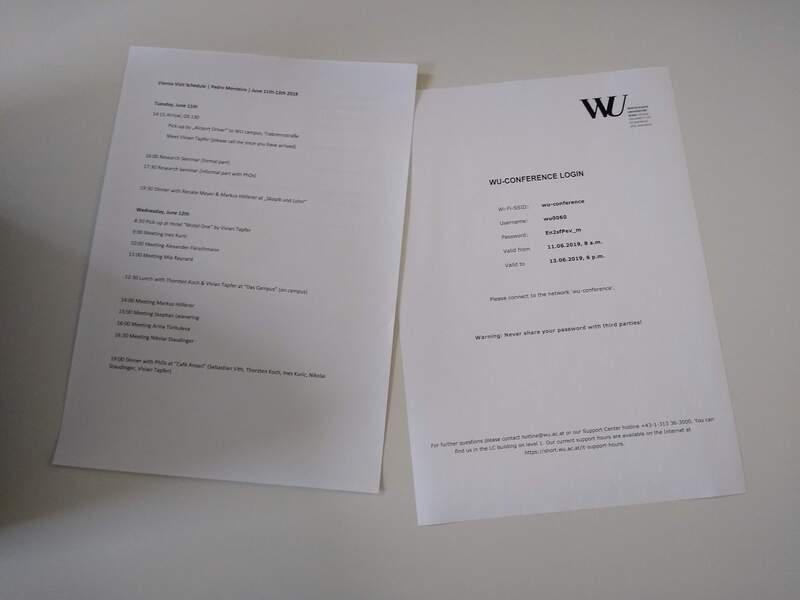
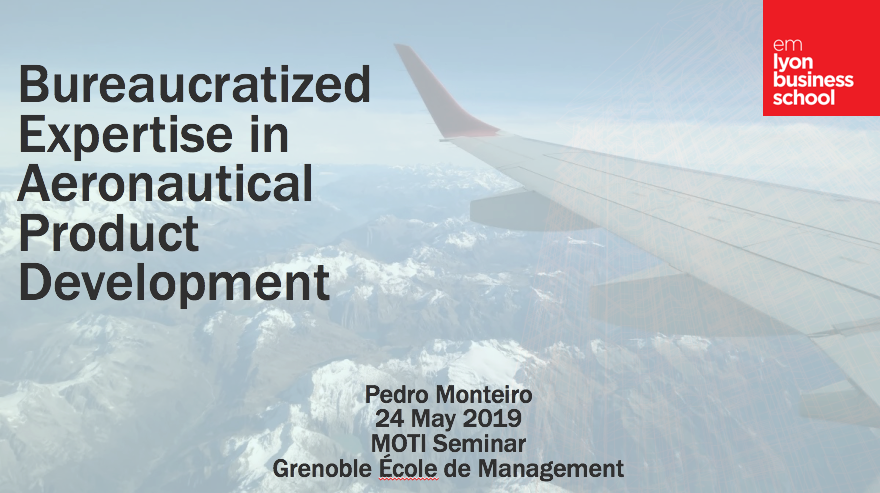
 RSS Feed
RSS Feed
